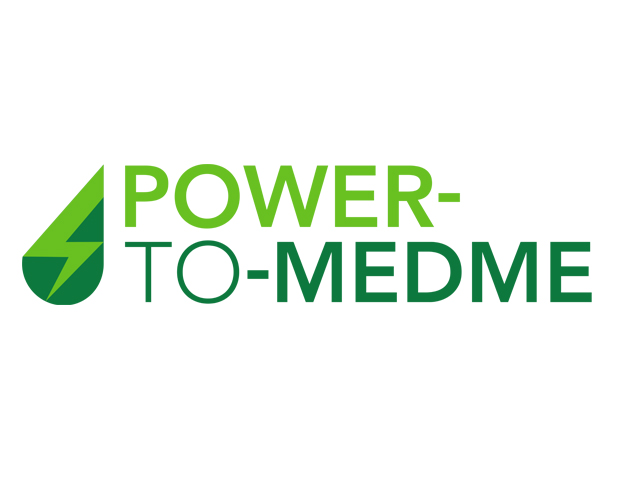"Power-to-MEDME" - Research project paves the way for large-scale production of green hydrogen energy carriers in Chile

Together with partners, the Fraunhofer Institute for Energy Economics and Energy System Technology IEE is paving the way for the establishment of large-scale production of green hydrogen and its downstream products in Chile. The core of the BMBF-funded project is research into the production potential of hydrogen and liquid fuels from solar energy. In addition to the technical issues, the researchers are investigating the economic, logistical and socio-economic aspects of scaling up. They are also supporting the installation of a pilot production facility for methanol and dimethyl ether in the country.
In future, Germany will cover a large part of its demand for green hydrogen and derivatives through imports. With its excellent solar potential and stable economic conditions, Chile can make an important contribution to the production of green hydrogen and derivatives - and thus also play a central role in supplying Germany with climate-friendly energy sources.
"With our accompanying research, we are making a significant contribution to unlocking Chile's potential for the production of CO2 -neutral energy sources. We are conducting research along the entire value chain for the production of PtX products and are not only optimizing the production process chain, but also evaluating possible local and international sales markets and business models," explains project manager Dr. Ramona Schröer from Fraunhofer IEE.
Research into materials and substances
As part of "Power-to-MEDME-FuE", the scientists are also looking at the materials required for the individual steps in the process chain. For example, they are developing catalysts for electrolysis.
The carbon dioxide required for methanol and DME synthesis in the pilot plant is supplied by a Chilean cement factory. A separation system is being installed for this purpose, which extracts CO2 from the factory's rotary kiln. For this task, the researchers are developing a sensor and control concept that enables efficient process control.
In addition, the scientists are collecting data for the design of transport logistics, with a view to the use of DME and other Power-to-X fuels in Chile as well as for export.
Energy-efficient processes for lower CO2 emissions
The thermal processes of clinker firing are particularly important for the CO2 balance. In the project, the Fraunhofer Institute for Silicate Research ISC and its Center for High Temperature Lightweight Construction HTL in Bayreuth are developing innovative measurement methods that enable more effective process control. These measurement methods are based on autonomous sensors that are mobile or integrated into the systems. The focus is on the rotary kiln and the so-called calcine looping process (CaL), in which the temperature and atmosphere distribution as well as the wear of the refractory components are to be measured.
As part of the project, a concept for a combination of rotary kiln and CaL is to be developed, with which the production of the cement can be implemented on an industrial scale in combination with a carbon capture process. "New AI methods will also be used to interpret the data more quickly and use it for control purposes, as well as a digital kiln twin that enables the calculation of energy and material flows as well as temperature fields and atmospheres," says Dr. Jürgen Meinhardt, head of the sub-project at Fraunhofer ISC, "Plant concepts and refractory materials are to be adapted with plant manufacturers and operators with regard to energy-efficient and low-CO2 -emission cement production processes.
Project information
Project coordination
Fraunhofer Institute for Energy Economics and Energy System Technology IEE
Project partners
- Fraunhofer Chile Research
- Fraunhofer ISE
- Fraunhofer IMM
- Fraunhofer ISC/HTL
- Fraunhofer IAP-CAN
- Fraunhofer IKTS
- RWTH Aachen
- FIBS RILL
Project funding
Federal Ministry of Education and Research BMBF
Project duration
Oct. 1, 2023 – July 31, 2025

Last modified: